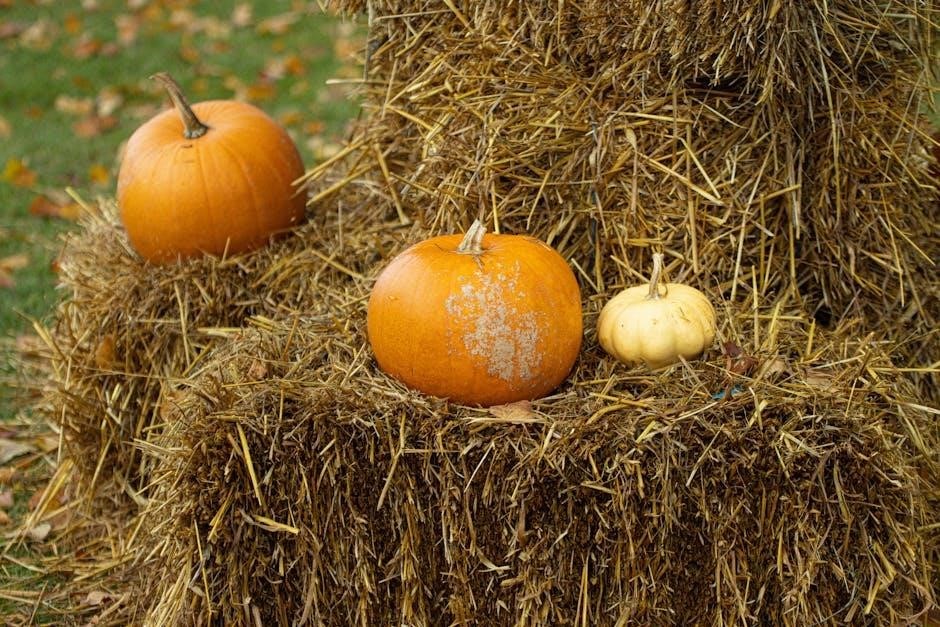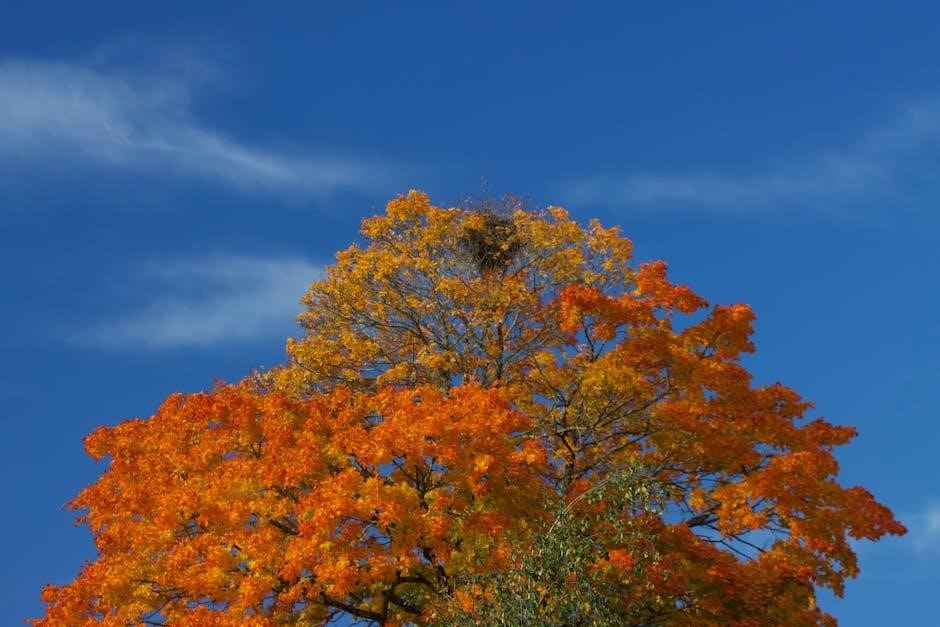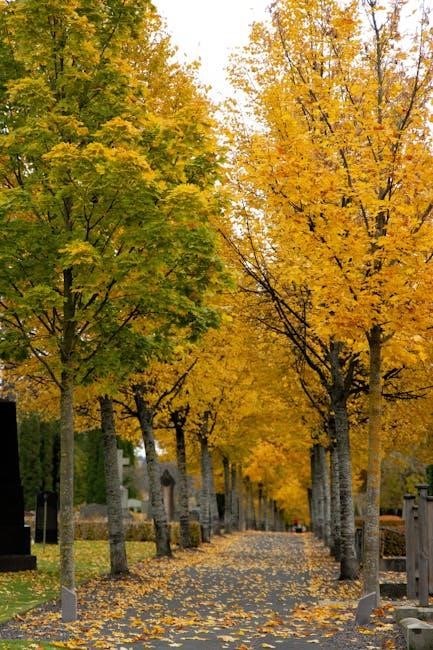The 2024-2025 Texas hunting season introduces updated county-specific regulations, notable changes, and diverse game opportunities. Hunters must consult the Outdoor Annual for the latest details and local restrictions.
Overview of Hunting Seasons in Texas
Texas offers diverse hunting opportunities across its vast landscape, with seasons varying by region and game species. The 2024-2025 season includes updates like the Desert Bighorn Sheep season shift to Nov. 15–Sept. 30. Hunters must adhere to county-specific rules, as regulations differ significantly across areas. Key changes include adjustments to migratory game bird seasons, such as teal hunting starting Sept. 2–Sept. 29. The Texas Parks and Wildlife Department ensures sustainable wildlife management through these regulations. Hunters are encouraged to consult the Outdoor Annual for detailed information on season dates, bag limits, and licensing requirements. Staying informed is crucial for a successful and compliant hunting experience in Texas.
Importance of County-Specific Regulations
County-specific regulations are crucial for Texas hunters, as season dates, bag limits, and permitted species vary significantly across regions. These rules are tailored to local wildlife populations, habitat conditions, and land use practices. Hunters must familiarize themselves with county-level restrictions to ensure compliance; For example, some counties may have stricter limits on certain game species to conserve populations, while others may offer special permits for exotic or controlled hunts. Ignoring these regulations can result in penalties. The Texas Parks and Wildlife Department provides detailed county-by-county information in the Outdoor Annual, making it essential for hunters to consult this resource before planning their outings. Staying informed ensures a lawful and sustainable hunting experience.
Key Changes for the 2024-2025 Season

The 2024-2025 Texas hunting season features several notable changes. One major adjustment is the shift in the Desert Bighorn Sheep hunting season, now set from November 15 to September 30, aiming to align with optimal hunting conditions. Additionally, the teal hunting season has been announced to start on a Saturday and run through September 29, providing a clear timeframe for waterfowl enthusiasts. These changes reflect efforts to balance wildlife conservation and hunter access. Hunters are encouraged to review the Outdoor Annual for the most up-to-date information, as season dates and regulations may vary by county. Staying informed ensures compliance and a successful hunting experience.
Key Hunting Seasons by County
Texas hunting seasons vary significantly by county, offering diverse opportunities for deer, dove, waterfowl, and turkey. County-specific regulations ensure balanced wildlife management and sustainable hunting practices statewide.

Deer Hunting Seasons by County
Texas deer hunting seasons vary by county, with distinct dates for archery, general, and muzzleloader seasons. The Panhandle and South Texas often have earlier starts, while Central and East Texas follow later. Bag limits and antler restrictions differ, emphasizing conservation. Hunters must verify county-specific rules in the 2024-2025 Outdoor Annual to ensure compliance. Seasonal adjustments aim to balance wildlife management and hunter access, ensuring sustainable deer populations statewide. Always check local regulations before planning your hunt to adhere to specific county guidelines and restrictions.
Dove Hunting Seasons by County
Texas dove hunting seasons vary by county, with specific dates for mourning dove, white-winged dove, and Eurasian collared dove. The 2024-2025 season typically starts in early September, with regional variations. Counties in the North Zone often begin on September 1, while the Central Zone starts later. The South Zone may have a split season, allowing hunting in September and resuming in November. Bag limits differ by species, with a daily limit of 15 mourning and white-winged doves combined. Hunters must consult the 2024-2025 Outdoor Annual for exact county-specific dates and bag limits to ensure compliance with local regulations. Seasonal adjustments aim to balance recreational opportunities with wildlife conservation efforts.
Waterfowl Hunting Seasons by County
Waterfowl hunting seasons in Texas vary significantly by county, with dates and bag limits tailored to regional conditions. The 2024-2025 season is divided into zones: North, Central, and South. The North Zone typically opens in late October, while the Central Zone starts in early November. The South Zone often has a split season, with hunting allowed in November and resuming in December. Bag limits include a daily maximum of 6 ducks and 5 mergansers, with restrictions on species like canvasback. Hunters must refer to the 2024-2025 Outdoor Annual for precise county-specific dates and regulations to ensure compliance. Seasonal adjustments aim to align with migratory patterns and conservation goals.

Wild Turkey Hunting Seasons by County
Texas offers diverse wild turkey hunting opportunities, with seasons varying by county and subspecies. The 2024-2025 season typically includes spring and fall hunting periods. Eastern and Rio Grande turkeys are the primary species hunted. Spring turkey season generally opens in late March or early April, with a bag limit of one gobbler per hunter. Fall seasons, where allowed, usually start in September, with broader bag limits. Hunters must check the 2024-2025 Outdoor Annual for county-specific dates, as some areas may have restricted or closed seasons. Proper permits and adherence to property laws are essential for a legal and successful hunt.
Regulations and Licensing
Hunting in Texas requires proper licensing and adherence to state and county regulations. The 2024-2025 Outdoor Annual provides detailed rules to ensure lawful and sustainable hunting practices.
Bag Limits and Possession Rules
Bag limits and possession rules for the 2024-2025 Texas hunting season vary by species and county. Hunters must adhere to daily and seasonal limits to avoid penalties. For example, deer hunting allows up to 5 white-tailed deer per season, with specific restrictions in certain counties. Waterfowl hunters face stricter regulations, with daily bag limits varying by species. Possession rules prohibit exceeding bag limits, even when hunting in multiple counties. The 2024-2025 Outdoor Annual provides detailed breakdowns for each species and region. Violations can result in fines and license suspensions, so hunters must stay informed. Always check county-specific regulations before heading out to ensure compliance with state laws.
Licensing Requirements for Hunters
Hunters in Texas must obtain a valid hunting license from the Texas Parks and Wildlife Department (TPWD). The 2024-2025 Outdoor Annual outlines specific licensing requirements, including resident and non-resident options. A Texas Resident Hunting License is required for state residents, while non-residents must purchase a Non-Resident Hunting License. Additional permits may be needed for specific game, such as waterfowl or deer. Youth hunters under 17 require a Youth Hunting License. Licenses can be purchased online or at authorized retailers. Hunters must carry their license while hunting and ensure it matches the type of game they are pursuing. Failure to comply with licensing rules can result in fines and legal consequences. Always verify requirements in the Outdoor Annual before hunting.
Property Laws and Trespassing Regulations
Hunting in Texas requires strict adherence to property laws and trespassing regulations. Hunters must obtain written permission from landowners before hunting on private property. Trespassing without consent is illegal and punishable by fines and criminal charges. Public lands, such as state parks and wildlife management areas, have specific access rules outlined in the 2024-2025 Outdoor Annual. Hunters must respect posted signs and boundaries to avoid legal consequences. Additionally, Texas recognizes “purple paint laws,” where painted fence posts or trees indicate private property. Always verify land ownership and secure permissions before hunting to ensure compliance with state and local regulations. Respecting property rights is essential for maintaining hunting access and avoiding conflicts with landowners.
Special Seasons and Permits
Texas offers special hunting seasons, including youth and military permits, with updated 2024-2025 regulations. Desert Bighorn Sheep season now runs from Nov. 15 to Sept. 30, and teal season starts Sept. 2. Hunters must consult the Outdoor Annual for specific permits and season details.
Youth Hunting Seasons
Texas promotes youth hunting through special seasons and programs, fostering early engagement in outdoor traditions. The 2024-2025 season includes youth-only periods for deer, waterfowl, and turkey. These seasons are designed to provide young hunters with opportunities to gain experience under adult supervision. Dates vary by county, with specific weekends allocated for youth hunting. For example, the teal season for youth began on Sept. 2, offering an early chance to hunt migratory game birds. Hunters aged 17 and under must be accompanied by a licensed adult. The Outdoor Annual details these youth-specific regulations, ensuring compliance and safety. These programs aim to inspire the next generation of hunters while emphasizing conservation and ethical practices.
Military and Veteran Hunting Permits
Texas offers special hunting permits and opportunities for active-duty military personnel and veterans. These permits aim to honor their service while providing access to hunting activities. The Texas Parks and Wildlife Department (TPWD) outlines specific regulations for military and veteran hunters, ensuring they can participate in both statewide and county-specific seasons. Permits may include reduced fees or special access to public lands. Veterans are encouraged to check the 2024-2025 Outdoor Annual for detailed information on eligibility and requirements. Additionally, some counties offer exclusive hunting periods for military members, fostering camaraderie and outdoor engagement. Hunters must ensure compliance with all state and local regulations to enjoy these privileges responsibly.

Exotic Game Hunting Opportunities
Texas offers diverse exotic game hunting opportunities, attracting hunters nationwide. Species like axis deer, nilgai, and elk thrive on private lands and ranches. Many counties allow year-round hunting for exotics, with minimal regulations. This unique aspect of Texas hunting provides a chance to pursue non-native species in controlled environments. Hunters must obtain proper permits and ensure compliance with property laws; Exotic game hunting is a significant draw for Texas, supporting conservation efforts and land management. The 2024-2025 Outdoor Annual details specific rules and counties where exotic game hunting is permitted, ensuring a memorable experience for enthusiasts.

Public Lands and Hunting Access
Texas offers extensive public lands for hunting, including state parks, wildlife management areas, and national forests. Access varies by county, with specific rules for each location.
State Parks Open to Hunting
Texas state parks offer limited hunting opportunities, with access varying by location and season. Parks like Lake Meredith National Recreation Area allow hunting under specific regulations. Hunters must adhere to park rules, which may differ from statewide regulations. The Outdoor Annual provides detailed information on which parks permit hunting and the applicable guidelines. Seasonal restrictions and bag limits are strictly enforced to ensure conservation. Hunters are encouraged to check the Texas Parks and Wildlife Department’s website for updates on park access and hunting permits. Always verify local regulations before heading out, as conditions can change annually.
Wildlife Management Areas (WMAs)
Texas Wildlife Management Areas (WMAs) provide essential habitats for diverse wildlife and offer regulated hunting opportunities. Managed by the Texas Parks and Wildlife Department (TPWD), these areas aim to balance conservation and public access. WMAs like the Matador WMA and Black Kettle WMA are popular for hunting various game species. Hunters must obtain specific permits and adhere to area-specific rules, which may differ from statewide regulations. The 2024-2025 season includes updates to WMA access and hunting permits, ensuring sustainable wildlife management. Always consult the Outdoor Annual for the latest WMA guidelines and season dates before planning your hunt.
National Forests and Hunting Access
Texas national forests, such as the Davy Crockett and Sam Houston National Forests, offer hunting access under specific regulations. These areas provide opportunities for hunting deer, wild turkey, and small game, but require adherence to both state and federal rules. Hunters must obtain permits and stay informed about seasonal closures or restrictions. The Lake Meredith National Recreation Area also allows hunting in designated zones, with updates available through the TPWD Outdoor Annual. It’s crucial to respect private property boundaries within these areas and follow all posted guidelines to ensure sustainable hunting practices. Always verify the latest regulations before heading into the field.

Private Property Hunting
Hunting on private property in Texas requires landowner permission. Written agreements are often necessary, and trespassing laws are strictly enforced to protect landowners’ rights and ensure legal hunting practices.
Leasing Land for Hunting

Leasing land for hunting in Texas is a popular option for accessing private property. Many landowners offer hunting leases to generate income while providing hunters with exclusive access to their land. These leases often cover specific periods and game species, ensuring sustainable hunting practices. Hunters must adhere to the lease terms, which may include bag limits and property rules. Written agreements are essential to clarify rights and responsibilities. Leasing land allows hunters to explore diverse habitats and game populations across Texas counties. It also fosters positive relationships between landowners and hunters, promoting mutual benefits. Always ensure leases are legally binding and respect private property rights.
Private Landowner Permissions
Obtaining written permission from private landowners is crucial for hunting on their property in Texas. Landowners retain the right to grant or deny access, and hunters must respect these boundaries. Written agreements help clarify terms, ensuring both parties understand the rules and expectations. This step is essential for maintaining positive relationships and avoiding legal issues. Hunters should always carry proof of permission when on private land. Additionally, respecting the landowner’s property and adhering to their specific rules fosters mutual trust and cooperation. The Texas Parks and Wildlife Department encourages hunters to seek permission well in advance of the hunting season to ensure compliance with all regulations.
Hunting Clubs and Cooperative Leases
Hunting clubs and cooperative leases provide unique opportunities for hunters to access private lands in Texas. These arrangements allow multiple hunters to share costs and privileges, fostering camaraderie and resource management. Clubs often offer exclusive access to prime hunting areas, while cooperative leases enable groups to lease land collectively. Both options require legal agreements to outline terms, ensuring fair use and property stewardship. Hunters interested in these arrangements should research local clubs or lease opportunities, as availability varies by county. These collaborative approaches not only enhance hunting experiences but also promote sustainable land use and wildlife conservation across Texas.

Staying Informed
Stay updated on Texas hunting seasons via the official Texas Parks and Wildlife Department website, Outdoor Annual, and local county resources for accurate 2024-2025 season details.
Official Sources for Hunting Information
Hunters should rely on official sources like the Texas Parks and Wildlife Department (TPWD) website and the Outdoor Annual for accurate 2024-2025 season details. The TPWD website provides county-specific regulations, season dates, and bag limits. Additionally, the Outdoor Annual is available as a downloadable PDF, offering comprehensive information on hunting laws and opportunities statewide. Hunters are encouraged to regularly check these sources for updates, as regulations can change. The TPWD also hosts webinars and updates its page with the latest proclamations, ensuring hunters stay informed about changes like the Desert Bighorn Sheep season adjustment. Consulting these official resources is essential for a lawful and successful hunting experience in Texas.
Downloading the 2024-2025 PDF Guide
The Texas Parks and Wildlife Department (TPWD) provides a downloadable PDF guide for the 2024-2025 hunting season, available on their official website. This comprehensive resource includes county-specific regulations, season dates, bag limits, and maps. Hunters can access the guide for free by visiting the TPWD website and navigating to the hunting section. The PDF is regularly updated to reflect the latest changes, such as the Desert Bighorn Sheep season adjustment. It serves as an essential tool for planning hunts and ensuring compliance with state and local laws. Downloading the guide is highly recommended for both experienced hunters and newcomers to stay informed and prepared for the upcoming season.

Mobile Apps for Hunters
Mobile apps provide hunters with convenient access to essential information for the 2024-2025 Texas hunting season. The Texas Outdoor Annual app and Hunt Texas are popular choices, offering detailed season dates, bag limits, and county-specific regulations. These apps also feature interactive maps, GPS tools, and real-time updates to help hunters navigate public lands and private properties. Additionally, they provide license purchasing options and harvest reporting features. By downloading these apps, hunters can stay informed and compliant with Texas Parks and Wildlife Department (TPWD) regulations. They are indispensable tools for planning and executing successful hunting trips across the Lone Star State.